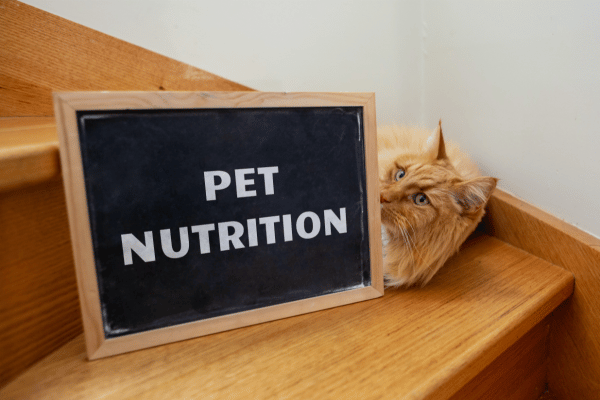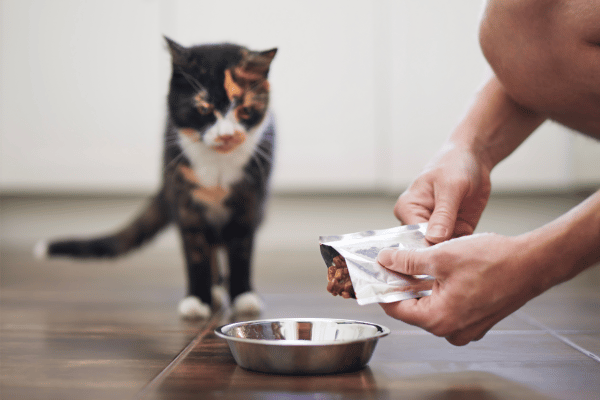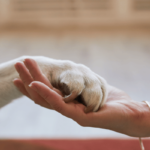Embrace Optimal Pet Nutrition for your beloved pets. Understanding their dietary needs ensures a healthier, happier life, tailoring nutrition for their unique requirements.
Decoding Pet Dietary Needs Effectively

Understanding pet nutrition is pivotal. Each breed has specific dietary requirements. For instance, large dogs need more glucosamine for joint health, while cats thrive on high-protein diets. Research suggests that homemade meals, tailored to these needs, can offer balanced nutrition. However, it’s crucial to avoid foods harmful to pets, like chocolate for dogs. Transitioning to a new diet should be gradual, allowing pets to adjust without digestive upset.
Homemade pet food has gained popularity. By preparing meals at home, you ensure freshness and quality. Ingredients like lean meats, vegetables, and grains can create nutritious meals. However, it’s essential to consult a veterinarian or a pet nutritionist. They can provide recipes and supplements to ensure a balanced diet. Notably, some pets may require specific nutrients not readily available in homemade food, making supplements essential for their health.
Besides food, hydration is vital for pets. Fresh water availability is crucial, as dehydration can lead to serious health issues. Additionally, treat selection should be careful. Opt for healthy options like dental chews or low-calorie treats. Monitoring pet weight is also important, as obesity can lead to health problems. Regular vet visits help in monitoring their nutritional status, ensuring that their diet aligns with their health needs.
Exploring Homemade Recipes for Healthy Pets
Creating homemade pet food can be a rewarding experience. It allows for customization according to your pet’s preferences and health needs. For instance, a dog with allergies may benefit from a grain-free diet, while a cat with urinary issues might need low-magnesium foods. Incorporating lean proteins, healthy fats, and essential vitamins is key. Always remember, balance is crucial; avoid overfeeding and ensure all nutritional needs are met for optimal health.
When preparing homemade meals, safety is paramount. Avoid toxic ingredients like onions and garlic for pets. Also, cooking methods matter; steaming preserves nutrients better than frying. Variety is beneficial; rotating proteins and vegetables prevents nutritional deficiencies. Remember, some human foods are not suitable for pets. Consulting a veterinarian before introducing any new food items is advisable to prevent adverse reactions and ensure the diet is nutritionally complete and balanced.
Apart from meals, consider treats as part of pet nutrition. Healthy snacks can supplement their diet. For dogs, carrot sticks or apple slices make great low-calorie treats. For cats, small amounts of cooked fish or chicken can be delightful. It’s essential to keep treats to less than 10% of their daily caloric intake. This approach ensures pets enjoy a varied diet while maintaining their optimal weight and preventing obesity-related health issues.
Optimal Pet Nutrition: Vital for Health

Incorporating Optimal Pet Nutrition in daily routines is essential for pet health. Understanding the balance between commercial and homemade diets is key. While commercial foods are formulated to meet general nutritional standards, they might lack specific elements needed for individual pets. Conversely, homemade diets offer customization but require careful planning to avoid nutrient deficiencies. Integrating both, with guidance from pet nutritionists, can provide comprehensive nutrition, catering to specific health conditions and life stages.
Nutritional supplements play a crucial role in optimal pet nutrition. Essential fatty acids, for example, promote healthy skin and coat. Probiotics can aid in digestive health. However, indiscriminate use can be harmful. It’s crucial to choose supplements based on specific needs and under veterinary guidance. Regular health checks ensure that dietary choices align with the pet’s evolving health requirements, preventing issues like vitamin excesses or mineral imbalances, which can have long-term effects.
Finally, pet owners should be aware of the latest nutritional research and trends. As knowledge in pet nutrition evolves, dietary recommendations may change. Staying informed through reliable sources and veterinary advice is vital. This proactive approach allows pet owners to make informed decisions about their pet’s diet, ensuring they receive the best possible care. Regularly revisiting and adjusting pet diets as needed contributes to their overall well-being and longevity.
Balancing Commercial and Homemade Pet Diets
Navigating the choice between commercial and homemade pet diets can be challenging. Commercial diets offer convenience and are scientifically formulated to meet nutritional standards. However, they might not cater to individual pet needs. On the other hand, homemade diets allow for customization but require a thorough understanding of pet nutrition to ensure they are complete and balanced. A balanced approach, incorporating both types with veterinary advice, can provide the best of both worlds.
When considering commercial pet food, it’s important to choose high-quality options. Look for brands that use whole, natural ingredients and avoid those with excessive fillers or artificial additives. Reading labels carefully to understand ingredient lists and nutritional content is crucial. For homemade diets, fresh, high-quality ingredients are key. Both diet types should be adapted to the pet’s life stage, activity level, and any specific health needs for optimal nutrition.
Transitioning pets between different diet types should be done gradually to avoid digestive upset. Start by mixing a small amount of the new food with the current diet, gradually increasing the proportion over a week or more. This method helps pets adjust to new flavors and textures while ensuring their digestive system adapts properly. Monitoring their reaction to dietary changes, including their energy levels, coat condition, and overall health, is essential during this process.
Tailoring Diets for Specific Pet Health Needs
Specialized diets can address specific health needs in pets. For instance, pets with kidney issues may require low-protein diets, while those with allergies might benefit from limited-ingredient diets. This customization, whether in commercial or homemade food, can significantly improve the pet’s quality of life. It’s imperative to consult a veterinarian before making any drastic changes, as they can guide the best dietary approach based on the pet’s health condition and nutritional needs.
Senior pets have different nutritional requirements compared to younger ones. As pets age, their metabolism slows down, necessitating lower-calorie diets to prevent obesity. Additionally, supplements like glucosamine can aid joint health, a common concern in older pets. Adjusting the texture and type of food can also be beneficial for senior pets with dental issues. Regular vet check-ups are crucial to monitor their health and adapt their diet accordingly.
For pets with weight issues, a carefully planned diet is essential. Overweight pets need calorie-controlled diets, often with increased fiber to aid fullness. Conversely, underweight pets require calorie-dense, nutrient-rich foods. Exercise, in tandem with dietary changes, plays a critical role in managing weight. Regular weigh-ins and body condition scoring help track progress and ensure the pet is on the right path to achieving and maintaining a healthy weight.
Strategies for Pet Weight Management Nutrition
Weight management in pets is a crucial aspect of optimal nutrition. For overweight pets, a reduced-calorie diet with a focus on lean protein and fiber can promote weight loss while maintaining muscle mass. Conversely, underweight pets may benefit from a calorie-dense, nutrient-rich diet to gain weight. It’s essential to adjust food portions and integrate regular exercise into their routine, monitoring their progress with regular weigh-ins and veterinary check-ups.
The balance of macronutrients – proteins, fats, and carbohydrates – plays a vital role in weight management. High-quality protein supports muscle health, while adequate fat provides energy and enhances meal palatability. Carbohydrates, when used judiciously, can provide a source of dietary fiber, aiding in digestion and satiety. It’s important to tailor these macronutrient ratios to each pet’s specific health status, lifestyle, and dietary preferences, under veterinary guidance.
In addition to diet, lifestyle modifications are key in managing pet weight. Increasing physical activity, whether through more frequent walks, play sessions, or tailored exercises, can significantly contribute to weight management. For pets with mobility issues or older pets, low-impact activities such as swimming can be beneficial. Consistent, gentle exercise not only aids in weight control but also improves overall well-being, joint health, and mental stimulation.
Integrating Supplements into Pet Nutrition Plans
Supplements can enhance pet diets, especially when specific nutritional needs aren’t fully met by regular food. Omega fatty acids, for example, are beneficial for skin and coat health, while glucosamine supports joint health. Probiotics and prebiotics can aid digestive health. However, it’s important to consult a veterinarian before adding any supplements to ensure they’re necessary and suitable for the pet’s health condition and diet.
The use of supplements must be tailored to each pet’s unique needs. Age, breed, health status, and lifestyle all play a role in determining the appropriate supplements. For instance, aging pets might benefit from antioxidants to combat oxidative stress, while active breeds may require additional energy and joint support. It’s crucial to source high-quality supplements and follow recommended dosages, as excessive supplementation can lead to adverse health effects.
Monitoring the pet’s response to supplements is essential. Regular veterinary check-ups can help assess the effectiveness of the supplements and adjust dosages or formulations as needed. Observing changes in energy levels, coat condition, mobility, and overall well-being can provide insights into the benefits of the supplements. It’s also important to consider any potential interactions between supplements and prescribed medications, adjusting the pet’s care plan accordingly.
Optimal Pet Nutrition for Lifelong Wellness
Optimal pet nutrition evolves through different life stages. Puppies and kittens require nutrient-rich, high-calorie diets for growth, while adult pets need balanced nutrition for maintenance. Senior pets often benefit from lower-calorie diets and supplements like joint support. Each life stage has distinct nutritional demands, and tailoring the diet accordingly is essential. Regular veterinary consultations ensure the dietary plan aligns with the pet’s age, activity level, and health status.
Nutrition plays a key role in disease management. For pets with conditions like diabetes or kidney disease, specialized diets can significantly improve health outcomes. These diets are formulated to address specific health issues, such as reducing strain on the kidneys or maintaining stable blood glucose levels. Consistent feeding of these therapeutic diets, under veterinary guidance, can enhance the pet’s quality of life and potentially reduce the frequency of medical interventions.
Beyond commercial diets, incorporating fresh, whole foods can provide additional health benefits. Fresh vegetables and lean meats, in appropriate quantities, can supplement a pet’s diet with natural nutrients and antioxidants. However, it’s crucial to understand which foods are safe and beneficial for pets. Consulting with a veterinarian or a pet nutritionist can guide pet owners in safely integrating these foods, ensuring the overall diet remains balanced and nutritious.
Tailored Nutrition for Every Pet Life Stage

The nutritional needs of pets significantly vary across different life stages. Puppies and kittens, for example, require nutrient-dense diets for their rapid growth and development. Adult pets need balanced nutrition to maintain their health, while senior pets often require diets with lower calories but enhanced with specific supplements to support aging joints and organs. Each stage demands particular attention to dietary requirements to ensure optimal health and well-being.
For active and athletic pets, high-energy diets rich in nutrients are essential. In contrast, pets with a sedentary lifestyle or those who are neutered may need lower-calorie diets to prevent obesity. The nutritional balance must consider the pet’s lifestyle, with a focus on maintaining a healthy weight and preventing nutritional deficiencies or excesses. Consistent monitoring and adjustments to the diet are crucial for maintaining their overall health and vitality.
Cats have distinct nutritional needs compared to dogs. They require higher protein levels and specific nutrients like taurine and arginine, essential for their carnivorous diet. Feeding cats a diet that meets these unique requirements is vital for their health. Even within the same species, individual pets may have different dietary needs based on their health, age, and activity level, emphasizing the importance of personalized nutrition plans.
Ensuring Balanced Diet for Pets’ Optimal Health
Providing a balanced diet is essential for pet health across all life stages. This includes a mix of proteins, fats, carbohydrates, vitamins, and minerals. Special attention should be given to the inclusion of functional ingredients like prebiotics and fibers that promote digestive health and overall well-being. For each pet, the balance of these nutrients should be adjusted based on their specific age, activity level, and any health conditions they may have.
For young pets, a diet that supports their rapid development is crucial. As they grow, their diet should evolve to maintain their health during their most active years. For senior pets, diets should be adjusted to support aging bodies, often requiring enhanced nutrients to manage age-related conditions. Throughout these changes, it’s important to ensure that the diet remains complete and balanced, providing all the essential nutrients in the right proportions.
Finally, pet owners should be aware of foods that are harmful to pets, like chocolate, onions, grapes, and certain nuts. Avoiding these foods is as important as providing the right nutrients. Regular consultations with a veterinarian can help pet owners navigate the complexities of pet nutrition, ensuring their pets receive a diet that promotes a healthy life. Tailoring the diet to individual pets’ needs can lead to improved health and longevity.
Achieving Optimal Health Through Tailored Pet Nutrition
In conclusion, tailored nutrition is pivotal for pet health. Each life stage from puppyhood to senior years demands specific dietary attention. Understanding these needs and adapting the diet accordingly can significantly enhance pets’ quality of life. A balanced diet, rich in essential nutrients, supports growth, maintains health, and manages age-related changes. Regular veterinary guidance ensures that pets receive the right balance of nutrition, contributing to their longevity and well-being.
Pet owners play a crucial role in their pets’ nutrition. By choosing high-quality food, avoiding harmful substances, and being mindful of specific health conditions, they can greatly impact their pets’ health. The journey of pet care is continuous and evolving. Staying informed about the latest nutritional research and trends helps owners make educated decisions, promoting optimal health for their furry companions. Nutrition isn’t just about feeding; it’s about nurturing a life.
We encourage pet owners to engage in this journey, adapting as their pets grow and change. Your involvement and commitment to understanding pet nutrition make a profound difference. We invite you to share your experiences, ask questions, and engage with our community. Together, let’s strive for the healthiest, happiest lives for our pets. Remember, every meal is an opportunity to nourish and cherish our beloved animal companions.
I. Dog and Cat Care FAQs
- What is the difference between a pet clinic and a veterinary clinic?A pet clinic typically focuses on routine care and minor issues for pets, offering services like vaccinations, health check-ups, and treatment for common ailments. A veterinary clinic, on the other hand, may provide a broader range of services, including specialized care, surgeries, emergency services, and treatments for more complex health issues.
- What is a cat clinic?A cat clinic is a veterinary facility that specializes in the care and treatment of cats. These clinics are designed to cater specifically to the unique needs of cats, offering services such as preventive care, diagnostics, surgery, and treatment of feline diseases and conditions
- How do I look after my cat in the UK?Looking after your cat in the UK involves providing a balanced diet, regular veterinary check-ups, vaccinations, and parasite control. Ensure your cat has a comfortable living environment, access to fresh water, and engage in regular play and exercise for mental and physical stimulation.
- How to take care of a cat?Caring for a cat involves providing a nutritious diet, clean water, regular veterinary care, and vaccinations. It's important to offer a safe and stimulating environment, with opportunities for play and exploration. Regular grooming, litter box maintenance, and attention to your cat's behavioral and emotional needs are also crucial.
- What is a Pet Sitter?A pet sitter is an individual who cares for pets in the owner's home while the owner is away. They provide food, water, exercise, and companionship for the pets, and may also perform additional tasks like administering medication, cleaning up after the pets, and providing updates to the owners.
- What does PetBacker do?PetBacker connects pet owners with trusted pet sitters and dog walkers. It offers a platform for pet owners to find and book services like pet sitting, dog walking, pet boarding, and grooming, ensuring pets receive care and attention when their owners are unable to do so.
- Is taking care of pets a skill?Yes, taking care of pets is a skill that involves understanding animal behavior, nutrition, health care, and emotional needs. It requires patience, empathy, and a commitment to learning about the specific needs of different types of pets.
- What are the warning signs in a pet sitter?Warning signs in a pet sitter include lack of communication, reluctance to provide references, negative reviews, and a lack of interest in your pet's specific needs. Unexplained injuries or changes in your pet's behavior after being in their care can also be red flags.
- How to care for dogs and cats?Caring for dogs and cats involves providing a balanced diet, regular exercise, and preventive health care, including vaccinations and parasite control. Both need mental stimulation, affection, and grooming, but dogs may require more social interaction and structured exercise, while cats need safe spaces and litter box maintenance.
- Do dogs and cats care if we are naked?Dogs and cats generally do not have the same social norms and perceptions about clothing as humans do. They respond more to the scent, behavior, and body language of their owners rather than their state of dress or undress.

Join Dan Morgan at dwfocus.com, your hub for ‘4 paws and owners’ wisdom! Explore a world where pet care meets expert insights, crafted by Dan, a seasoned vet with a heart for animals. Engage with stories, tips, and advice that every pet owner needs. From playful pups to graceful cats, Dan Morgan guides you through the joys and challenges of pet parenting. Embrace your love for pets with Dan’s expert guidance on dwfocus.com. #4PawsAndOwners #DanMorganPetExpert #dwfocus







